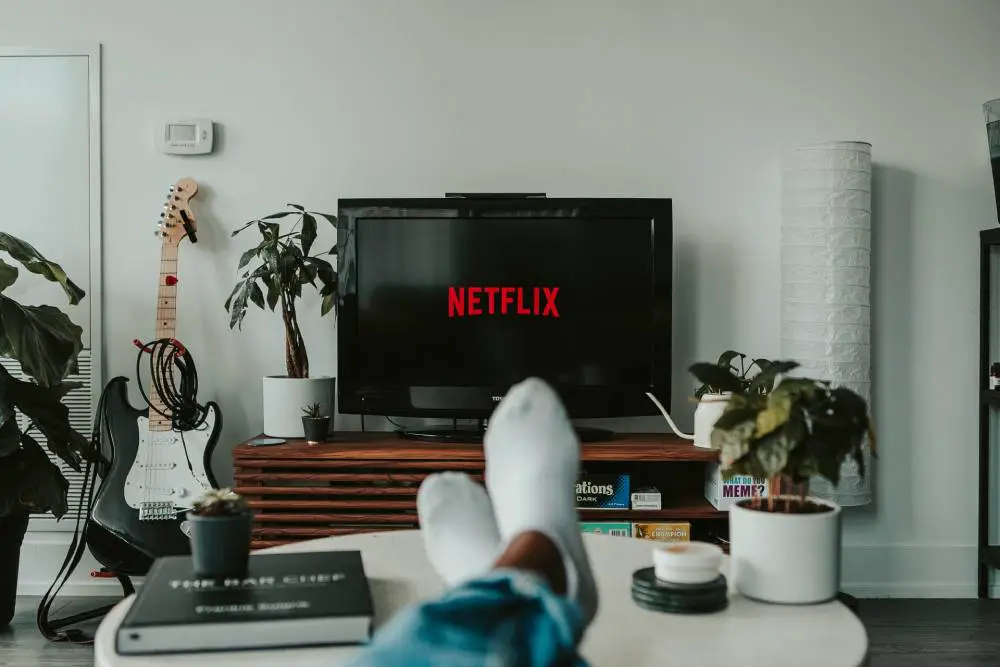I don’t know about you, but I don’t know where I would be today if it wasn’t for a wide variety of both movies and music. Yup, they are just that important when it comes to entertainment overall.
While there are certainly a lot of similarities when it comes to music vs movies, there are also some differences. Let’s talk about them now.
What Is The Difference Between Music And Movies?

Music and movies vary according to their consumption, their experiences to consumers, how they are created, and their entire length.
Granted, there are plenty more differences when you look at music vs movies. For the time being, let’s take a deeper look into the reasons that were specifically mentioned.
1) Movies Are For Watching And Music Is For Listening (Mostly)
To explain further, when you choose to watch a movie, you’re mostly doing so during your free time. This is so you can immerse yourself in the film experience.
In addition, when you’re watching a movie, all your attention is poured into:
- Trying to know and remember the main characters (and their names).
- Discovering their overall struggles.
- As well as understanding the plot.
On the other hand, you only really need your listen when consuming media such as music.
Sure, you may happen to be singing along to the lyrics of your favorite songs, but the point still stands that movies generally require more attention compared to music.
2) Movies And Music Offer Completely Different Experiences
These two types of media are enjoyed in their unique ways. But one thing they have in common is that both media can be consumed on your own or with others.
However, in terms of the experiences they can offer, music is a lot more versatile as you can listen to it almost anywhere and anytime.
- Movies can be watched on your own.
- Movies can also be watched with your family and friends.
You can also choose to watch movies at the comfort of your home or in public spaces, such as theatres where you watch along with hundreds of people and perhaps share the same emotions with them throughout the film.
After watching a movie, you and your friends can share your thoughts about the film and its morals, for instance. You can even make a blog or a film review and express your views there for others to see.
Since movies also tend to evoke an emotion in us towards the end, you’re more likely to ponder about a movie’s well-written plot, its characters, and its ending.
As for music, you can enjoy it anywhere too, with or without company. There’s a chance that you’ll hear your favorite music in festivals, parties, and malls.
Besides, playing music in the background can help make the atmosphere lively. Can you ever imagine a party without music playing in the background? It’d be boring, right?
Additionally, you can blast music in your room as you do house chores, exercise, and do other activities. You can even listen to music privately through your earphones too, especially when you’re out and about.
Listening to your favorite jams can help you stay motivated while you get things done or when you just need some form of entertainment anytime and anywhere.
Meanwhile, the same thing can’t always be applied when it comes to movies.
This is because playing a movie in the background while you do other things may lead you to miss some significant scenes in the said film, which will make your movie experience less satisfying upon finishing the film.
3) Movies Tend To Be Longer Than Music
On average, one movie takes around two hours to finish. In those two hours, you most likely would have listened to approximately 40 songs in your favorite playlist.
This is because movies have a complex story to tell their audiences, so they require a long time to squeeze all the necessary parts in a film. After all, a well-written and compelling movie needs more than just three minutes to keep viewers hooked until the very end.
While even music also contains stories to tell through its lyrics and beautiful melodies, movies have a much more comprehensive means of storytelling.
Yes, well-written songs also evoke emotions and memories within us, but the impact is not the same when you compare it to an excellent movie that leaves you thinking about its ending over and over again.
Does Music Make Movies Better?
The answer is yes; music does make movies better. This is because music establishes the overall setting of a movie.
With the right kind of music, you can reinforce the plot of a movie better. For instance, the sound of acoustic guitars will set the tone that a movie is set in a peaceful village.
The right music also creates the perfect atmosphere. In joyous scenes, you’d definitely play upbeat music to match the settings accordingly. If you portray two characters falling in love slowly, you will slap in a love song or two to fit the storyline.
The music played in the background also portrays the characters’ emotions and train of thought. Thanks to music, we can emotionally relate to how a character feels at certain scenes, even when they’re simply staring in the distance and aren’t saying any dialogue at all.
Lastly, music also helps with the buildup. Instrumentals will be carefully selected and played to build up the emotions present in a scene. For instance, you’d play suspenseful themes for horror movies to keep the audience fearful of what’s coming next.
Why Does Music Sound Better In Movies?
Wonder why movies can hit you right at your feels at crucial scenes? It’s more than just choosing the right kinds of songs to play at significant moments. The music is often timed with the scenes played in movies to give it that emotionally hitting factor.
Another reason is that the music is also sometimes cut to match particular scenes in movies.
It’s also all about the right combination of sight and sound. After all, carefully selected music combined with striking visuals and scenery will give a better audience impact.
What Is More Important Music Or TV? Closing Words

Both music and TV are essential in their own ways. Thanks to music, we can play songs that match our current mood and allow us to feel our emotions better. We can also play music to keep us productive and motivated while doing other things or simply entertain us.
On the other hand, thanks to TV, we can explore many different themes, widen our knowledge in various topics, create communities and bind people together, and continuously encourage curiosity.
In short, both mediums are just as important in our daily lives, no matter how different the experiences they offer to us as we consume them.
All in all, I hope that you are now much more aware of the differences when it comes to movies vs music. Both can also be seen as hobbies, which I wrote about in the articles below.
- Related: Listening To Music Is A Hobby.
- Related: Watching Movies Is A Hobby.
Thank you for reading.